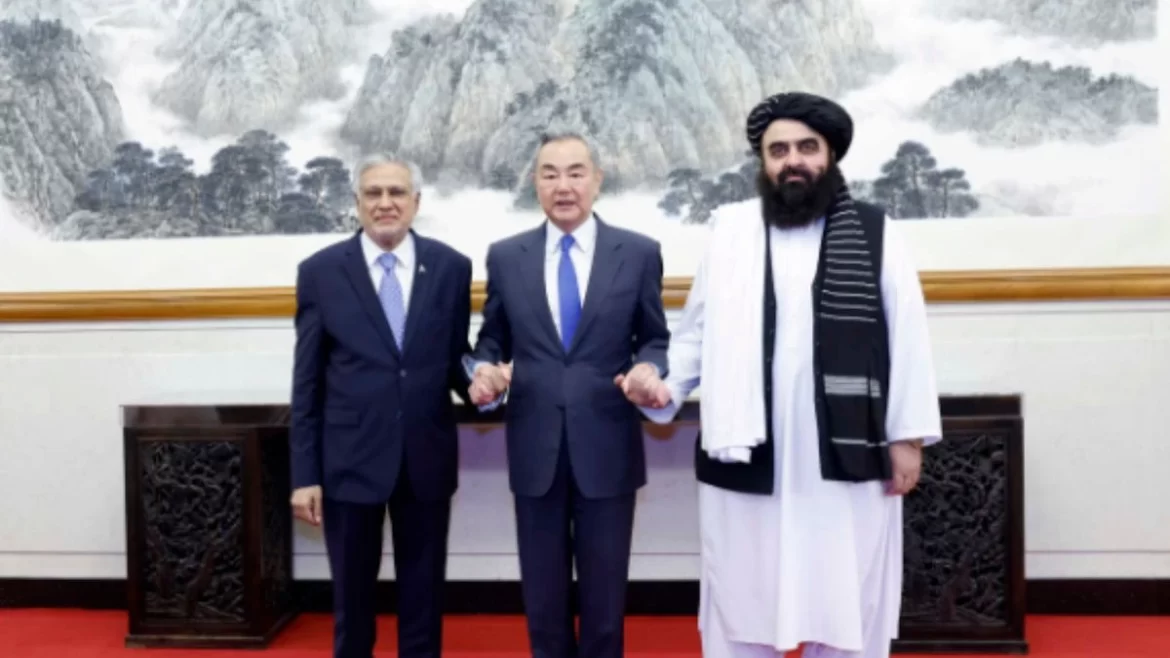China Praises Pakistan-Afghanistan Ceasefire
China has welcomed the recent ceasefire agreement between Pakistan and Afghanistan, urging both nations to pursue peaceful conflict resolution. The Chinese Ministry of Foreign Affairs emphasized that Beijing is committed to promoting regional peace and stability and is ready to play a constructive role in improving bilateral relations.
A spokesperson for the ministry stated that China fully supports a joint, comprehensive, and lasting cessation of hostilities, highlighting the need to replace border tensions with cooperation and harmony. The statement reflects China’s longstanding policy of advocating dialogue and diplomacy to resolve regional disputes.
UNAMA Calls for Immediate Cessation of Hostilities
Meanwhile, the United Nations Assistance Mission in Afghanistan (UNAMA) also welcomed the truce. The UN mission urged both Pakistan and Afghanistan to ensure civilian protection and halt all forms of armed conflict along their shared border.
UNAMA stressed that border tensions not only endanger human lives but also pose a serious threat to regional stability. The mission called on all parties to exercise restraint, noting that even short-lived ceasefires can help create conditions for longer-term diplomatic engagement.
Background: Targeted Operations and Ceasefire Agreement
The ceasefire comes after Pakistan reportedly carried out targeted operations in Afghanistan against Taliban and Fityan al-Khawarij strongholds, which resulted in multiple casualties. Following these operations, the Afghan Taliban requested a temporary ceasefire, which Pakistan accepted.
The agreement established a 48-hour truce, intended to reduce immediate violence and open space for potential negotiations. According to sources, the ceasefire has largely been respected so far and is expected to remain in effect until the evening of the following day, creating a window for diplomatic dialogue between the two countries.
Regional Implications and Diplomatic Opportunities
Analysts note that the Pakistan-Afghanistan border has been a flashpoint for decades, with sporadic clashes affecting civilians and undermining regional economic and security cooperation. Read more on why Afghanistan and Pakistan are fighting here. The current truce represents a significant opportunity to explore sustained dialogue, particularly amid broader international efforts to stabilize Afghanistan.
China’s support for the ceasefire may serve as a diplomatic bridge, encouraging both countries to consider confidence-building measures. Beijing has previously mediated talks in South Asia, emphasizing non-interference and constructive engagement as key principles.
Next Steps and Expectations
While the current ceasefire is temporary, observers remain cautiously optimistic. If the truce holds, it could pave the way for formal negotiations and reduce the risk of future cross-border escalations.
UNAMA and regional stakeholders continue to monitor the situation closely, urging all parties to maintain restraint and prioritize civilian safety. The coming days may determine whether this short-term ceasefire evolves into a longer-term framework for peace and stability along the Pakistan-Afghanistan border.















